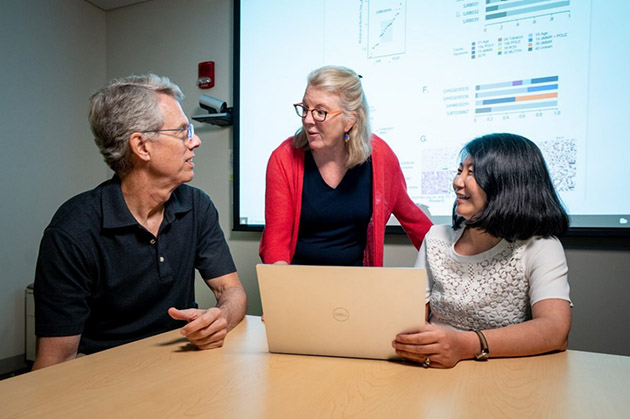St. Jude Children’s Research Hospital continues research into value of comprehensive genomic screening over standard genetic testing for childhood cancer
Pediatric oncologists who treat childhood cancer will be interested in this recent research from St. Jude Children’s Research Hospital spotlighting value in comprehensive genomic sequencing (CGS) for pediatric cancer patients. A key insight of the study is that CGS provides a detailed perspective of the genetic makeup of each patient’s tumor, enabling better identification of important variations that affected potential treatments.
“We want to change the thinking in the field,” said David Wheeler, PhD, St. Jude Precision Genomics Team Director and a co-author of the study. “We showed the potential to use genomic data at the patient level. Even in common pediatric cancers, every tumor is unique, every patient is unique. This study showed the feasibility of identifying tumor vulnerabilities and learning to exploit them to improve patient care.”
For the study, researchers combined three different methods of genetic sequencing—whole genome, whole exome, and RNA sequencing—with a focus on obtaining as much information about the genetic profile of each patient’s tumor as possible. This comprehensive method of screening varies significantly from commonly used forms of genetic screening which only test certain parts of a tumor’s genetics.

From Unrecognized to Recognized Clinically Relevant Variations
Comprehensive genetic analysis at St. Jude Children’s Research Hospital identified at least one patient-specific variation in the genetic makeup of cancer in 86% of the children tested. Researchers also reported an estimate that 20% of the clinically relevant variations would have gone unrecognized if a standard genetic testing approach was used.
“Some of the most clinically relevant findings were only possible because the study combined whole genome sequencing with whole exome and RNA sequencing,” said Jinghui Zhang, PhD, St. Jude Department of Computational Biology Chair and co-corresponding author of the study, in a news release.
The combination of whole genome, whole exome, and RNA sequencing is not widely available. However, recent advances in genetic sequencing capabilities combined with increasing research on precision medicine treatments have made this approach more feasible, according to researchers.
What’s Ahead for Pediatric Oncology
“Through the comprehensive genomic testing in this study, we were able to clearly identify tumor variations that could be treated with targeted agents, opening doors for how oncologists manage their patients,” said co-corresponding author Kim Nichols, MD, St. Jude Cancer Predisposition Division Director.
“Even the most treatable cancers are not curable in all patients. For example, relapse remains the leading cause of death for the most common childhood cancer, acute lymphoblastic leukemia,” Nichols explained as part of St. Jude’s announcement. “Being able to understand and predict which patients will respond to treatment and which won’t requires collecting comprehensive genomic data on all patients.”
As of late July 2021, approximately 2,700 patients were enrolled in the clinical genomics program at St. Jude, according to a statement at that time. By leveraging the benefits that comprehensive genetic screening offers, clinicians say they can use precision medicine-based treatments that are tailored specifically to each patient’s unique needs.
Those interested in learning more about the clinical genomics precision medicine initiative at St. Jude can access details about patient enrollment; somatic alterations; identification of gene fusions, enhancer hijacks, and microdeletions; mutation signatures and etiology of pediatric tumors; novel germline variants; a comparison of gene panels; and more in the article published in Cancer Discovery.
Continuing research at St. Jude will demonstrate the feasibility and efficacy of a comprehensive genomic screening approach. While not widely available, improved genetic screening is set to become a new standard of care that hospitals can begin planning for now.
As evidence of the real-world performance of comprehensive genomic screening accumulates, hospitals that offer CGS may find they can enhance patient care and potentially benefit from a new source of revenue.
—Caleb Williams
Related Information:
Comprehensive clinical sequencing opens door to the promise of precision medicine
